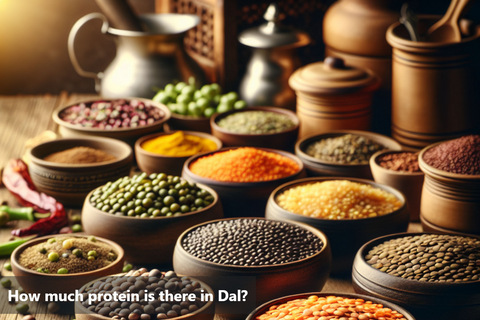
What's the protein content in almonds?
Almonds, a popular tree nut known for their crunchy texture and delicious flavor, are not only a tasty snack but also a valuable source of protein in a balanced diet. When it comes to protein content, almonds stand out as a nutrient-dense option that can benefit overall health and well-being.
In just a 100-gram serving of almonds, you can find a significant amount of protein, making them a great plant-based protein source for vegetarians and vegans. Additionally, almonds contain essential amino acids, making them a complete protein source that can support muscle repair and growth.
For those looking to understand the protein content on a smaller scale, a single almond provides a modest but noteworthy amount of protein. However, consuming a handful of almonds, such as five or ten, can contribute significantly to your daily protein intake. This makes almonds a convenient and versatile snack option for individuals seeking to increase their protein consumption without relying on animal products.

Nutritional Profile of Almonds
One ounce of almonds (28g) or about 24 whole almonds contains:
Calories |
164 |
Fat |
14.2g |
Sodium |
0.3mg |
Carbohydrates |
6.1g |
Fiber |
3.5g |
Sugars |
1.2g |
Protein |
6g |
Vitamin E |
7.3mg |
Magnesium |
76.7mg |
Protein Content in Almonds
Protein content in almonds varies depending on the serving size. In general, almonds are known for their rich protein content, making them a valuable addition to a balanced diet.
Protein in One Almond: A single almond contains approximately 0.25 grams of protein. While this may seem small, the protein content adds up when almonds are consumed in larger quantities.
Protein in Five Almonds: Consuming five almonds provides around 1.25 grams of protein. This makes for a convenient and nutritious snack option that can help boost your daily protein intake.
Protein in Ten Almonds: With each almond offering 0.25 grams of protein, having ten almonds amounts to a total of 2.5 grams of protein. This serves as a satisfying snack that not only curbs hunger but also provides essential nutrients.
So, whether you prefer to enjoy almonds as a snack, add them to your salads, or include them in recipes, their protein content makes them a versatile and beneficial food choice for supporting your nutritional needs.
Homemade Recipes Featuring Almonds
Recipe |
Ingredients |
Instructions |
|---|---|---|
Almond-Crusted Chicken |
|
|
Almond Milk Smoothie |
|
|
Almond-Crusted Fish Fillets |
|
|
Almond Granola Bars |
|
|
Almond-Crusted Vegetable Bake |
|
|

Almonds: A Protein-Packed Nutritional Powerhouse
The protein content in almonds makes them a valuable addition to your daily diet. Almonds are not only delicious but also packed with essential nutrients, making them a versatile and convenient snack choice.
Incorporating almonds into your meals or consuming them as a snack can significantly contribute to meeting your daily protein requirements. Moreover, the protein content in one almond may seem small, but when consumed in larger quantities, such as 5 or 10 almonds, the protein intake adds up. This makes almonds a convenient and portable protein source for individuals with busy lifestyles.
By understanding how much protein is present in almonds, you can make informed decisions about including them in your diet to support muscle growth, repair, and overall health. Whether you sprinkle them on salads, blend them into smoothies, or enjoy them on their own, almonds offer a nutritious way to boost your protein intake.
This Blog post is an initiative by Lo! Foods, to provide accurate and Nutritionist / Doctor approved information related to Health. Lo! Foods is India's leading brand for Everyday Functional Foods. Foods designed for specific Health conditions or Needs. Lo! Foods also runs India's largest range of Low Carb Healthy Cloud Kitchens, under the brand names of Lo!, ProteinChef, ATH (All Things Healthy) and DiabeSmart.











Leave a comment
Your email address will not be published.